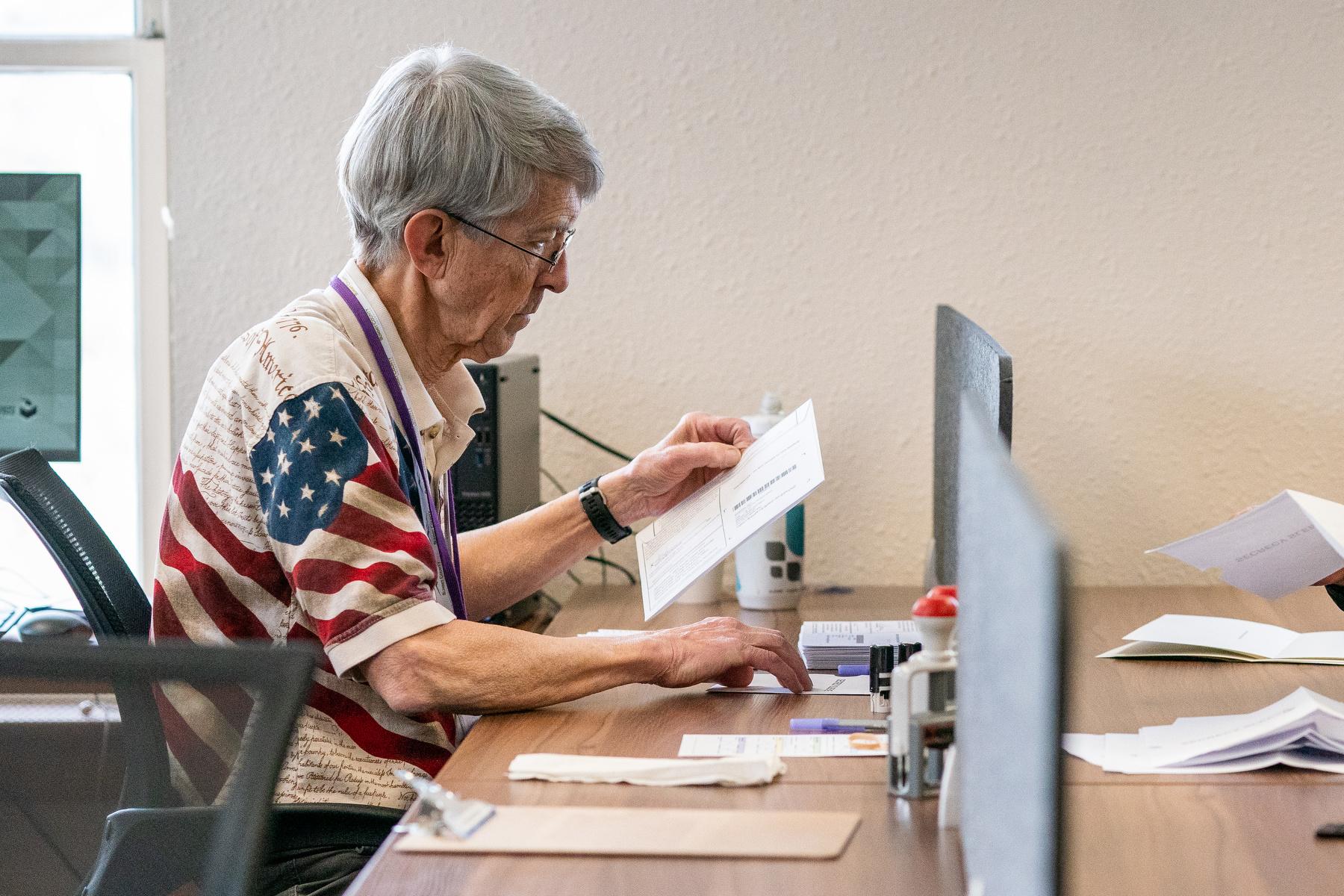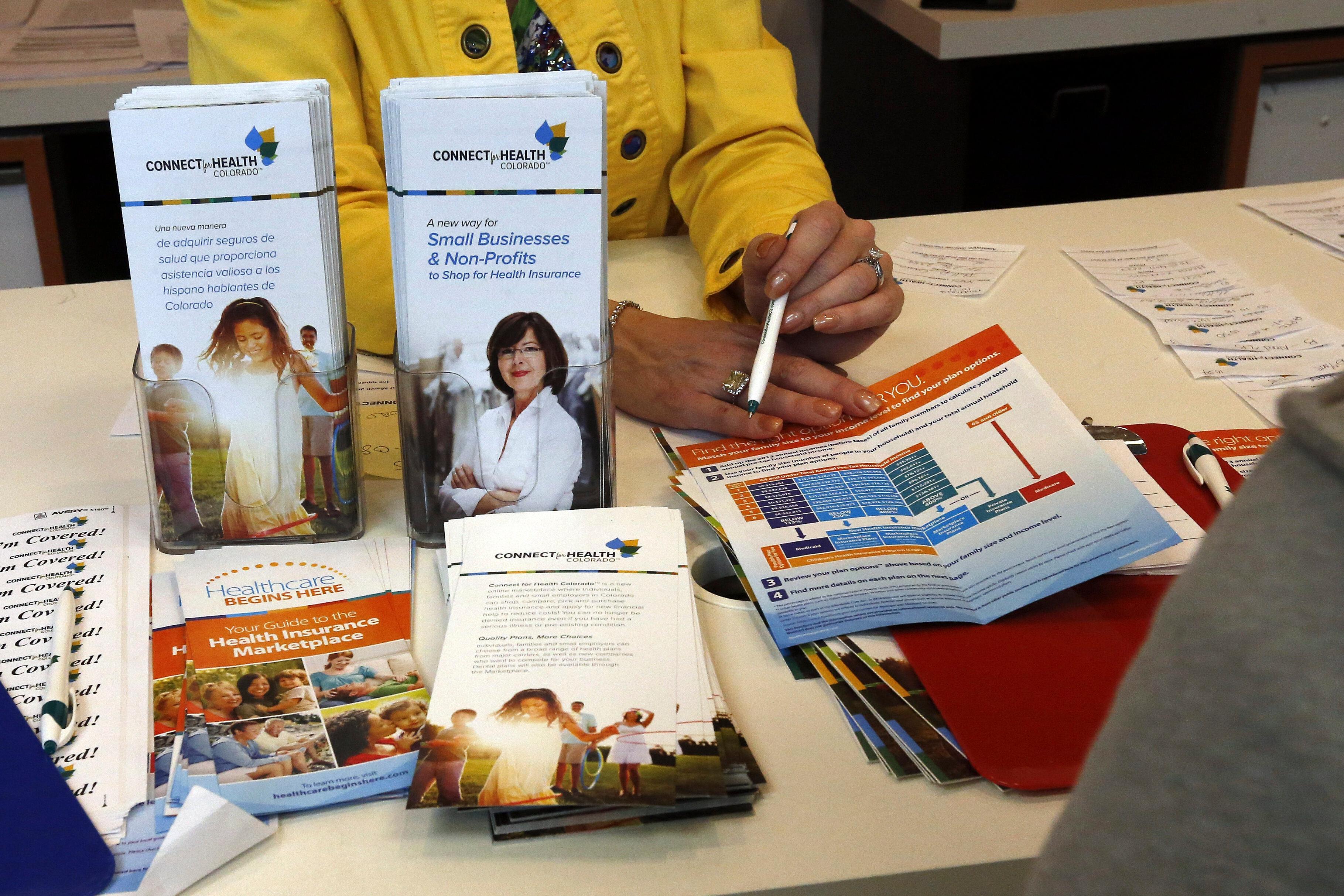
Prop. 131 would significantly change how Colorado’s primary and general elections are conducted for many offices. It would replace single-party primaries with “all-candidate” primaries. It would also introduce ranked-choice voting for general elections in November.
The changes would apply to elections for Congress, the state legislature, governor and other state offices, including the CU Board of Regents and the State Board of Education. They would not apply to local races or presidential elections.
If Prop. 131 is approved, instead of having a Democratic primary and a Republican primary to select each party’s official candidates, all qualified candidates would be listed on a single primary ballot. Voters would select their single preferred candidate from the broader field.
The top four vote-getters from the primary would proceed to the general election. Since there would no longer be a single “official” candidate for each party, it’s possible that multiple members of the same party could end up running against each other in the general election.
General elections would be revamped, too. Instead of selecting a single candidate in the November election, voters could choose to rank some or all of the four candidates, in order of preference. Each voter’s rankings would be counted in a multi-step process to determine the winner.
Here’s the language you’ll see on your ballot:
Shall there be a change to the Colorado Revised Statutes creating new election processes for certain federal and state offices, and, in connection therewith, creating a new all-candidate primary election for U.S. Senate, U.S. House of Representatives, governor, attorney general, secretary of state, treasurer, CU board of regents, state board of education, and the Colorado state legislature; allowing voters to vote for any one candidate per office, regardless of the voter’s or candidate’s political party affiliation; providing that the four candidates for each office who receive the most votes advance to the general election; and in the general election, allowing voters to rank candidates for each office on their ballot, adopting a process for how the ranked votes are tallied, and determining the winner to be the candidate with the highest number of votes in the final tally?
How would Prop 131 work?
Only one other state, Alaska, has implemented something similar to both of these changes. And only a handful of others are using individual parts of the Colorado plan. But that could change with this election. Proposals for nonpartisan primaries or ranked-choice voting are being considered in Nevada, Arizona, Idaho, Oregon, South Dakota and Montana. Other states also are considering measures to prohibit or repeal ranked-choice voting.
Fundamentally, Prop. 131 would do away with the idea that members of each political party should play a specific role in selecting a candidate to represent their party in the general election. Candidates would no longer have to try to win their party’s primary.
Instead, primary elections would become a contest to determine who are the most popular candidates for the entire electorate — with all candidates, from all parties, competing for support from all voters.
In the general election, Prop 131 would move Colorado to what’s known as “ranked-choice” or “instant runoff” voting.
Voters would assign candidates a rank, one to four, in order of preference. To determine the winner, election officials would first count up all the top choices. If one candidate is the top choice of a majority of voters, that candidate wins.
If there is no majority winner from voters’ top choices, a second round of counting begins. The candidate with the least first-round support is eliminated. If a voter had that person as their top choice, that voter’s ballot now goes to their next ranked candidate. If a voter hasn’t ranked another candidate, their ballot is “exhausted” and removed from the calculations.
This process continues until one candidate has a majority of the votes.
What the research shows:
Seth Werfel, a political scientist with a PhD from Stanford University, recently compiled an extensive summary of studies that looked at both the real world implementation of the policies similar to Prop. 131 and experiments trying to gauge their potential impacts. Werfel described himself as neutral on the proposals; he analyzes research on subjects like this in his role as an adviser to philanthropists.
Here’s some of what these studies and others indicated about a couple of the biggest claims about this new system:
- Political moderation is a possible outcome: There is some evidence that nonpartisan primaries are connected to more moderate politicians winning some elections. For example, “empirical evidence” from Alaska suggests that its similar system helped moderate Republican Sen. Lisa Murkowksi beat a Trump-backed Republican in 2022. Members of Congress elected through all-candidate primaries have tended to be more moderate.
“There is some really tentative and limited evidence that [these kinds of systems] produce elected officials that are slightly more moderate in terms of how they vote when they get in office. But I'd say that evidence is still pretty weak,” Werfel said.
Ranked-choice voting was associated in several studies with more civility in campaigns, though Werfel says that evidence is weakened by the fact that most RCV elections are at the local level, where politics aren’t so polarized. Also, a 2023 review of studies cast doubt on those claims of depolarization.
All-candidate primaries also were associated with an increase of voter turnout by about 6 percentage points, one study found.
- Voters may make more mistakes: Ranked-choice voting is more complicated and potentially confusing. Several studies have found that voters are more likely to make mistakes that disqualify their ballot. A 2023 study found that roughly half a percent of ballots in ranked-choice voting contests will be rejected due to voter errors. That’s a relatively low number, but it’s still roughly 10 times higher than the rejection rate in traditional systems, the study found.
Werfel said that concern could potentially be addressed with voter education over time.
“The evidence is persuasive and important but it doesn’t mean on its own that we should abandon this,” he said. In contrast, at least one experiment found that more complicated voting systems may not cause more ballot rejections.
Voters also may not use ranked-choice voting to its fullest. If they fail to rank all four candidates, their ballot may be “exhausted” if the voting continues for multiple rounds, meaning they won’t have an impact on the final outcome. Ballot exhaustion may be more common among voters of color, potentially reducing their influence on elections.
Who’s for Proposition 131?
The supporting campaign is calling itself Yes on Prop. 131, and also is known as Colorado Voters First.
Prop. 131’s largest individual backer is Kent Thiry, a multimillionaire who previously was the president and CEO of DaVita, the kidney dialysis company.
He also played pivotal roles in previous ballot measures that have changed Colorado’s elections — including one that opened primary elections to unaffiliated voters, and another that implemented an independent redistricting commission to combat gerrymandering.
“There aren't that many great democracies that have survived more than a couple hundred years. And in order to survive, you have to modernize and modify and reflect society,” Thiry said in an interview this summer.
The measure has picked up some high profile endorsements, including Gov. Jared Polis, Sen. John Hickenlooper and Denver Mayor Mike Johnston. It also has the backing of groups such as the conservative American Enterprise Institute, the Colorado Chamber of Commerce and the League of Women Voters. Also on the campaign is Amber McReynolds, the former Denver County clerk.
Proponents argue these changes will shake up the incentives for politicians, encouraging bipartisanship by making them accountable to the entire electorate, while giving voters more choices in elections and more power to express their preferences.
Prop 131 would usher in a new way of doing primaries.
Supporters of the “all-candidate” or “top-four” primary argue that it removes the incentive for politicians to pander to their party base out of fear of facing a primary challenge from the fringe. It also means the most ideologically-driven voters, who currently make up a disproportionate share of primary voters, will have less say over who makes it to the general election.
Backers also argue that “all-candidate” primaries will give more voters a chance to meaningfully affect their representation. In heavily partisan areas, the election is essentially determined in the primary. The winner of a Democratic primary in a heavily Democratic area will almost certainly win the general election. That means the Republican voters who are shut out of the primary election get essentially no say in their representation.
“Colorado’s relatively high General Election turnout is wasted because so many races are decided in low-turnout primaries,” the campaign website states.
“All-candidate” primaries address this by allowing all voters to weigh in during all stages of the election.
Prop 131 has a national network supporting it.
The “yes” campaign had raised about $9.3 million as of Sept. 25. Thiry gave $1.4 million. The nonprofit Unite America also gave about $4.7 million, including through its PAC; Thiry is co-chair and a prime financial backer of that organization. Other major supporters include Walmart heir Ben Walton and Netflix co-founder Reed Hastings, who both gave $1 million. Marc Merrill, who co-founded the video game studio behind League of Legends, gave $250,000, and Kathryn Murdoch gave $500,000.
The backers of Prop. 131 are part of a national network of wealthy people who have bankrolled similar ballot initiatives in other states.
The Colorado campaign had spent about $4.7 million as of Aug. 28, including more than $3 million on consultants and professional services, as well as $1.1 million on advertising.
Who’s against Proposition 131?
There are two organized opposition campaigns. Voter Rights Colorado represents more liberal groups, while First Choice Counts is aimed at conservatives.
Voter Rights Colorado had reported raising about $83,000 as of Sept. 25, mostly from an obscure group called Coloradans for Accessible and Secure Elections.
The conservative group, First Choice Counts, had reported raising about $7,200.
Overall, critics of Prop. 131 argue it will lead to more money in politics and undermine voters’ faith in the election system by introducing unnecessary complexity.
Elected officials and party leaders from across the spectrum have come out against the measure. The opposition ranges from Republican Rep. Lauren Boebert to the Green Party of Colorado. The state Republican and Democratic parties have both made strong statements against the measure.
While they’ve used different words, they both argue Prop. 131 will boost wealthy candidates. Shad Murib, chair of the state Democratic Party, wrote that it amounts to “throwing a hand grenade into our election system and blatantly meddling in the legislative process.”
Opponents argue that all-candidate primaries will be more expensive, with more candidates trying to reach a bigger electorate — giving self-financed candidates even more of an advantage. In the current system, primary candidates may be able to rely more on the “grassroots” of the parties for a boost.
“I think when you throw more people into the primary, you just need more money to break through the craziness,” said Ellen Dumm, who is working for Voter Rights Colorado.
Critics also say that politicians could try to game the system, like when California Rep. Adam Schiff apparently attempted to boost a Republican candidate in the primary — an effort to secure himself an easier opponent for the general election, instead of having to face a fellow Democrat. (Colorado’s current system is also prone to gamesmanship, with Democrats spending money to boost MAGA candidates in recent Republican primaries.)
Voter Rights Colorado campaign has support from groups like the abortion access nonprofit Cobalt, the Colorado AFL-CIO, the Colorado Cross-Disability Coalition, the voter advocacy group Common Cause Colorado, the state employees union Colorado WINS, the Colorado Immigrant Rights Coalition, the Colorado Organization for Latina Opportunity and Reproductive Rights, the Interfaith Alliance of Colorado, and several others.
On the conservative side of the aisle, First Choice calls the proposition a “a reckless political experiment that will reduce Colorado voters to serfs of the state.” It argues that RCV relies on a “computer algorithm” to run “black-box” calculations, although supporters say that the process is transparent.
The campaign also quotes former President Donald Trump: “You never know who won in ranked-choice. You could be in third place and they announce that you won the election. It’s a total rigged deal.”
The Green Party of Colorado also opposes the measure. While ranked-choice voting may benefit minor parties in general elections, GPCO is concerned that few third-party candidates would make it through the top-four primary. The elimination of write-in votes also could hurt third-party candidates, the party said.
Election officials:
Some of Colorado’s county clerks have raised concerns about how difficult it might be to implement the new system and teach voters how to use it properly.
“When we're making big changes to elections, we need to be thoughtful and deliberate,” Molly Fitzpatrick, clerk of Boulder County, told CPR News before Prop. 131 made the ballot. Boulder County recently implemented a ranked-choice voting system.
Prop. 131 calls for the new system to go into effect for the 2026 elections, giving election officials just two years for implementation if it passes.
For comparison, just changing Boulder’s system took about 18 months, and making statewide changes would be much more complex, said Fitzpatrick, who is also the president of the Colorado County Clerks Association.
“They will need to update the electronic results reporting website. They will need to get the proposed election audit software ready. They will need to implement rulemaking and they will need to engage in a huge voter education campaign,” she said in an interview.
The new system would cost the state an estimated $6 million per year. Counties would spend another $9 million yearly, some of which would be reimbursed by the state, according to nonpartisan fiscal analysts. Some of those costs will only apply in the initial years while others would be ongoing.
Counting and auditing votes could grow more complicated, clerks have warned. Currently, each clerk can easily count the results of all voting within their own county and send those results to the state. But Prop. 131’s multi-stage calculations means the instant run-off will often have to happen at the regional or state level.
In response to those concerns, state lawmakers passed a bill that could effectively block Prop. 131 from ever being implemented, unless a specific variety of local governments first implemented similar changes on their own. Gov. Jared Polis signed that bill into law, but promised to get Prop. 131 in place by 2028, should it pass. Thiry has said that Colorado has effectively implemented past reforms on a similar timeline.
The opposition campaign claims that county clerks “were never consulted about the proposed changes,” though members of the Colorado County Clerks Association did meet with Thiry’s team in the drafting stages.
“We clearly identified the requirements that we need to successfully implement this, and our concerns have been essentially brushed off by him and his team,” said Matt Crane, the organization’s executive director.








